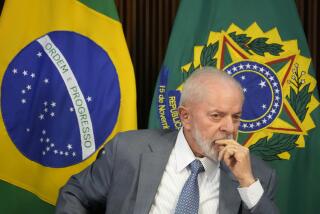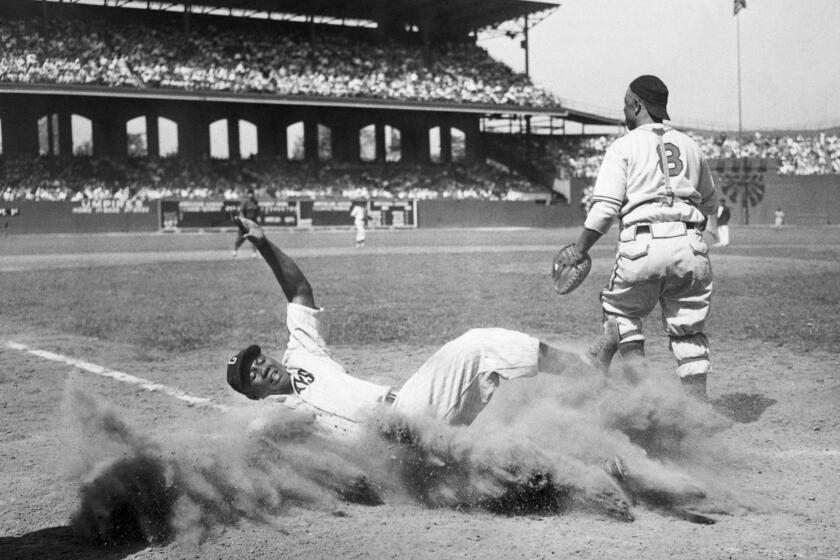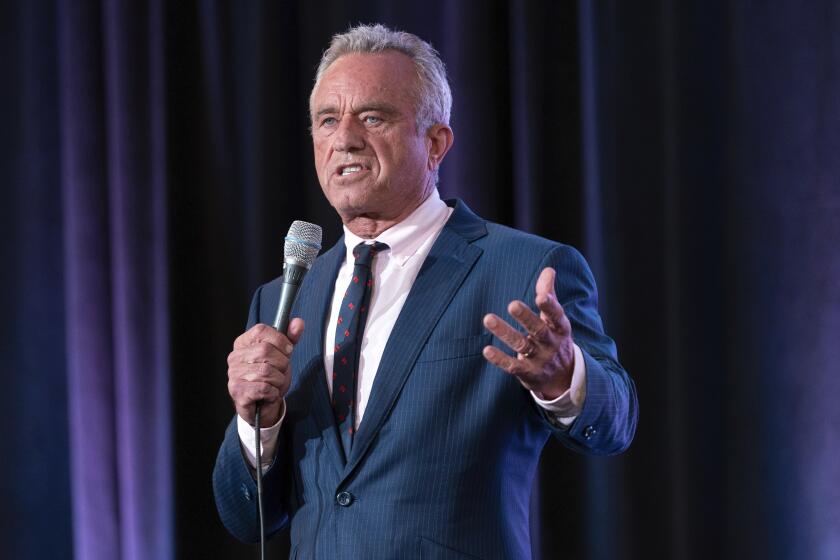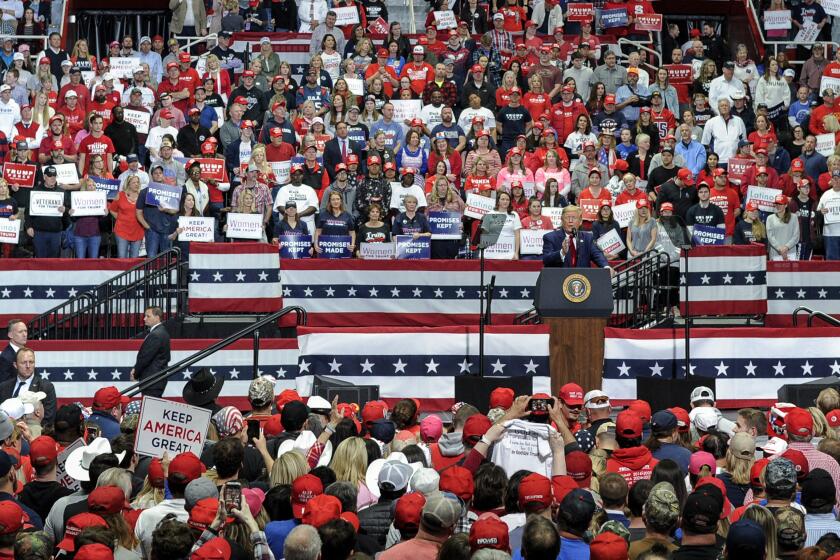A Dwindling List of Options on Drugs : Latin America: It may be time for governments to declare victory over the cartels and end the costly and ineffective fight.
For a while now, the Latin American drug scene has been transformed: Traffickers have become businessmen; governments have been seduced and tempted by the charms of accommodation; countries have been pressured by Washington into a war they cannot win and do not want to fight.
Today, matters have worsened. The travails of President Ernesto Samper of Colombia reflect this deterioration, though they must be viewed as symptoms of a hemispheric problem, not just as a Colombian anecdote or tragedy or even as another marvelously told tale like Gabriel Garcia Marquez’s upcoming reportage of drug-linked kidnapings and adventures.
The story is simple. Samper was elected in 1994; his campaign finance director, Santiago Medina, subsequently confessed to the independent federal attorney general that he received campaign donations from the Cali cartel. Former campaign manager and Defense Minister Fernando Botero has resigned and been thrown into jail. Samper survives under a cloud of suspicion that he knew of and approved the contributions from the cartel. Medina is widely accused of either lying, settling personal accounts or--according to an interpretation privately attributed to Samper--of having been commissioned by the cartel to join the Samper campaign, ingratiate himself with the candidate and later frame him if he misbehaved.
All explanations are plausible. Either Samper was aware of everything and knew exactly what he was doing: cutting a deal with the country’s leading exporters and businessmen, with the purpose both of winning a tight election and of governing peacefully afterward. Or Samper was ignorant of misdeeds that others performed on his behalf and was set up by his aides, yet is still to blame for running such a loose ship that this sort of mischief was not only feasible but likely.
The conclusion to be drawn in either case is evident. Presidential politics in Colombia, to whatever extent it may previously have been affected by the drug trade, is now permeated, through and through, by the cartels, be they the formerly all-powerful but now presumed extinct Cali and Medellin organizations or by new, rapidly emerging substitutes operating throughout the country.
Gustavo de Greif, the Colombian ambassador to Mexico and former attorney general, whose commitment to combatting the drug trade in Colombia is corroborated by his success in dismantling the Medellin cartel and tracking down Pablo Escobar, has his doubts about the wisdom of continuing the “war.” He has called for the legalization of drugs in Latin America, arguing that the cost of combatting them is far greater for Latin American nations than the benefit of their eradication, presuming the latter were possible. While De Greif has been tainted by charges of ancient ties with corporations known to be owned by the Cali chieftains, his voice is a respected one in Colombia and throughout the hemisphere.
Mexican industrial magnates, rarely suspected of espousing particularly liberal views on social matters, also are rumored to be lobbying for studies that would support the case for legalization.
Which leads directly to the question of intrusive U.S. “cooperation.” Increasingly, Washington is tacitly or even explicitly stating that if Latin American governments are not willing or able to wage the war on drugs according to U.S. standards and desires, then the United States should be allowed to do it for them. Bolivian President Gonzalo Sanchez de Losada is rumored to have told his fellow Latin American presidents in Quito recently that he sarcastically asked an American envoy to whom he should hand over power, since U.S. demands for more action were becoming increasingly unacceptable. This is also clearly emerging as a problem in Mexico, where the silent pressures from Washington on the Zedillo administration are weakening an already precarious government.
There is a growing split between governments and society in Latin America. The choice seems to be between continued penalization and confrontation, on the one hand, and negotiations and legalization on the other. The Latin version of “don’t ask, don’t tell”--whereby modest if sometimes bloody and costly efforts at drug enforcement as in Colombia during the 1980s and early ‘90s coexisted with accommodation--has been choked off by the United States.
Now, negotiating with the drug lords while simultaneously maintaining the facade of confrontation is proving too costly and embarrassing. The options are narrowing: Either persuade Latin American societies that the war on drugs can be won and should be waged or declare victory and go home. This drastic choice may not have to be faced tomorrow, but it is closer than ever before.
More to Read
Start your day right
Sign up for Essential California for news, features and recommendations from the L.A. Times and beyond in your inbox six days a week.
You may occasionally receive promotional content from the Los Angeles Times.






